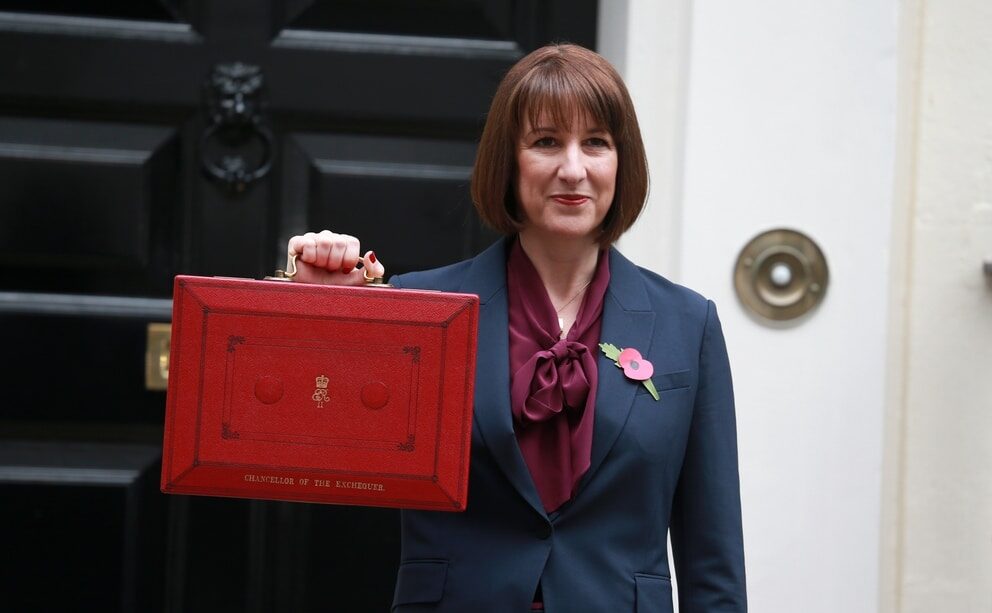
From 6 April 2027, the annual ISA cash limit will be lowered from £20,000 to £12,000 for under-65s, with the £8,000 designated “exclusively for investment”, Chancellor Rachel Reeves said.
The £20,000 cash ISA limit will remain in place for borrowers over 65.
HM Treasury said the limits will remain at £4,000 for Lifetime ISAs (LISAs) and £9,000 for Junior ISAs and Child Trust Funds until 5 April 2031.
Financial services firms will also “provide new, easily navigable ways for people to find the right UK investment for them”, and these measures together will “support companies to start, scale and list in the UK”, HM Treasury said.
The Budget report added that it would publish its consultation into LISA reform early next year.

The future is here: API-powered full mortgage applications are live with Halifax Intermediaries
Sponsored by Halifax Intermediaries
This will look into the “implementation of a new, simpler ISA product to support first-time buyers to buy a home”.
The report added that once available, this “new product will be offered in place of the Lifetime ISA”.
Reeves said in her speech that the UK had some of the lowest levels of retail investment in the G7 and that it was not only “bad for business” but also “bad for savers”.
She said investing £1,000 per year in an average stocks and shares ISA every year since 1999 would have delivered a £50,000 better return than if it was in a cash ISA.
Cash ISA reform has been rumoured since the Spring Statement earlier this year, with speculation suggesting that the cash ISA limit could be halved for all customers.
However, this was criticised by figures across the mortgage industry, who said it was a crucial source of funding for mortgages, and changes could make mortgages more expensive.
Changes could also discourage saving in an environment where saving is challenging for many customers.
Industry glad cash ISA limit cut muted but worry about reducing saving options
Sarah Coles, head of personal finance at Hargreaves Lansdown, said the UK needed an “investment culture”.
She explained: “The Chancellor’s calculation that investing instead of saving in an ISA could have left you £50,000 better off demonstrates the huge growth potential offered by investment. However, it remains to be seen whether the cut to the cash ISA will have the impact the Treasury is hoping for.
“There will be people for whom cash ISAs are the most sensible home for their money, especially if they’re saving for the short term, have significant sums of cash and are a higher earner, so they won’t want to move into investment.
“There will be those who should be investing instead, but the game-changer here will be changes in the pipeline to allow businesses to provide more targeted support and give people the help they need to take advantage of the enormous growth potential of investment. It’s the carrot that’s going to be effective here, not the stick.”
Coles said that as this wasn’t happening until 2027, it gives people “time to take advantage of their cash ISA allowance”.
“It’s still important not to let the tax tail wag the dog. How much you pay into ISAs, and the balance of cash and stocks and shares, will depend on your own circumstances. However, if it makes sense to open a cash ISA, and you have the money and allowance available, it’s worth acting sooner rather than later, while there are still strong rates around,” she added.
Catherine Wray, senior savings manager at Leeds Building Society, said the building society was pleased that the government has listened to concerns that it has “consistently raised on behalf of our members”.
She continued: “Protecting a £20,000 annual tax-free cash ISA allowance for older savers with a lower appetite for risk will provide reassurance to millions who rely on those cash savings.
“Whilst we accept that investing in stocks and shares is the right choice for some people, it’s not suitable for everyone. Reducing the cash ISA allowance for under-65s risks limiting options for those who need certainty and flexibility for shorter-term goals, such as saving for a house deposit.”
Wray agreed that there was plenty of time to maximise current allowances before changes are implemented and existing balances are unaffected by reforms.
“The upcoming changes underline the importance of people reviewing their savings, and we encourage everyone to put money away where possible. That includes making use of tax-free saving in cash ISAs when the new £12,000 allowance comes into force from April 2027,” she added.
Susan Allen, chief executive of Yorkshire Building Society, said it was “disappointed” to see the cash ISA allowance reduced, but it welcomed the fact that the Chancellor had listened to the mutual sector not to cut the cash ISA limit dramatically.
“We’re also pleased the £20,000 allowance remains for those over 65, as flexibility for retirement planning is crucial. Our research shows that only one in 10 over-60s would consider stocks and shares, so maintaining secure, accessible options matters – especially for our members.
“We recognise the value of investing in stocks and shares where savers understand and can accept the risk involved. However, people nearing retirement should not feel pressured into options that may not meet their needs. Cash ISAs offer a safe, simple way to save and remain an important option for those who prioritise security,” she said.
Allen said cash ISAs “play a crucial role in helping people build financial resilience, achieve life goals, and feel secure about their future”.
“Every pound saved in a cash ISA with a building society helps fund mortgage lending – supporting first-time buyers, families, and new homes across the UK.
“It is important that we keep ISAs simple, accessible, and effective, without penalising those who prefer the security of cash savings,” she said.
LISA is a ‘confused product in desperate need of simplification’
Rachael Griffin, tax and financial planning expert at Quilter, said the move to replace the LISA shows that the government had accepted it was a “confused product in desperate need of simplification”.
She said: “In early 2026, the government will publish a consultation on the implementation of a new ISA product, which will replace the existing Lifetime ISA and focus solely on supporting first-time buyers. As it currently stands, the Lifetime ISA has attempted to serve two distinct goals – saving for retirement and saving for a first home – but has failed to meet either effectively. While the 25% government bonus has been undeniably popular, the product itself has carried serious flaws and the withdrawal penalty has punished savers at a time when they have faced significant financial strain.
“What’s more, the house price cap of £450,000 has been unchanged since the product first launched in 2017 and has become increasingly detached from reality in many parts of the country. This has resulted in many people who have saved diligently, particularly those living in London and the South East, being unable to use their LISA for the property they need without facing a penalty. This has undermined confidence in the product and added complexity and must be addressed within the new product.
“As part of its consultation, the government should also look to reform the punitive 25% withdrawal penalty, which often punishes savers for accessing their own money by taking back not only the government bonus, but some of their own savings too. For many first-time buyers, the LISA has provided genuine help, and a simplified offering should continue to meet the same need. However, there will be question… marks over how and if existing LISA holders will be affected, and the government will need to ensure they are not disadvantaged.”





